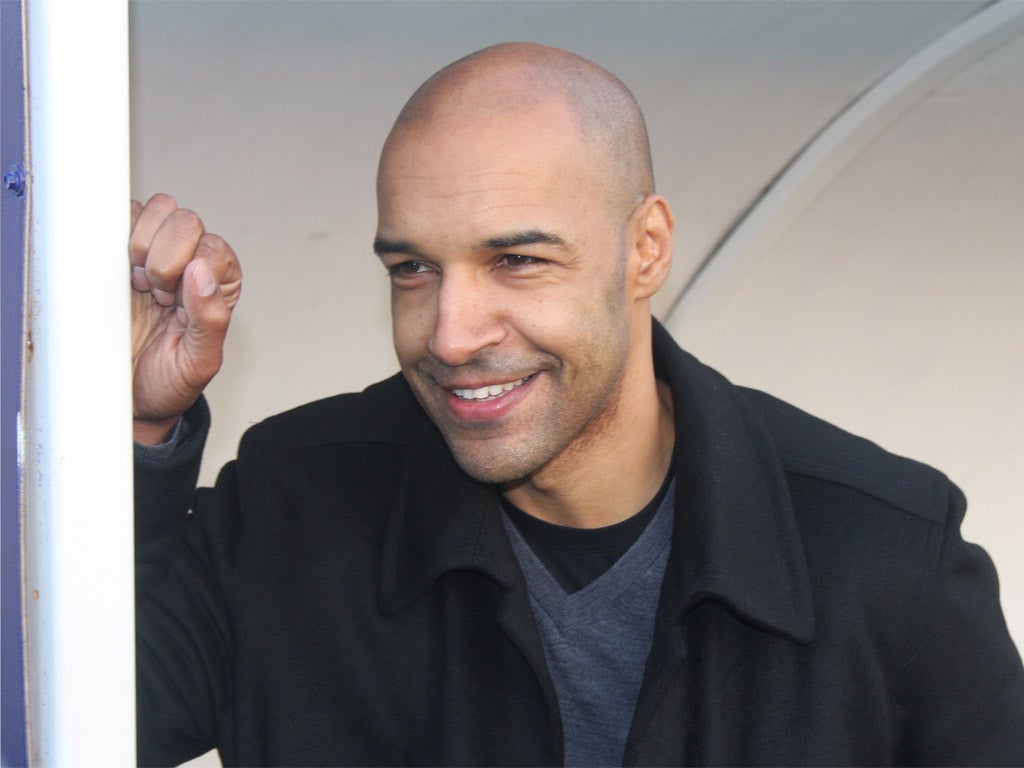Europa League: Andy Preece makes history in breaking colour bar and targets the top
He becomes the first black English manager to coach in European competition

The immensely long road to the final of the Europa League final - to be held in Turin's Juventus Stadium, 314 days from now - begins tonight and amid the myriad of first qualifying round fixtures is a significant milestone which might easily pass unnoticed. Andy Preece, the manager of the Welsh League side, Airbus UK, will become the first black English manager to coach in European competition when he sends his side out to face Ventspils of Latvia at Wrexham's Racecourse Ground.
For 46-year-old Preece, it is the latest landmark in a managerial career defined by building success in the most inauspicious surroundings. He steered a penniless Bury to the Division Three play-offs in 2003 - scoring as player-manager in their defeat, after the financial disaster which beset their famous benefactor Hugh Eaves had left them shaking bucket and selling seats to make ends meet. Bury reluctantly parted company with Preece because they could not afford to pay credible wages. “This action has been necessitated by the need to make a significant reduction in expenditure,” a club statement said at the time. And though his eye-catching non-league achievements in the decade since have included delivering two other troubled clubs - Worcester City and Northwich Town - to lucrative televised FA Cup appearances beyond the competition's qualifying rounds, his own attempts to climb back into the Football League ranks has been the familiar one for black managers. Scores of applications, a burning desire just to get in front of chairman to discuss what his philosophy and achievements, but just one interview - at Colchester six years ago.
It was a sense of frustration at his own apparent invisibility which contributed to Preece, who at the height of his goalscoring days in 1991 was signed as a strike partner to Chris Armstrong for Crystal Palace's Premier League side, departing the English pyramid for Welsh football last year. Northwich had been expelled from the Northern Premier League and prevented from contesting the play-offs because of financial issues. With a mix of young players and loan signings he took the Welsh club, who have their origins as the works team of an aerospace wing manufacturing factory on the Flintshire-Cheshire border, to their highest ever finish last season - second behind the dominant New Saints, who were champions of the Welsh league for the sixth time in nine seasons.
“It was a gamble,” Preece says of his decision to take the job at a club who had never finished above seventh in Wales. “People were saying 'you'll just be forgotten there. You're going into obscurity.' But the prospect of getting into Europe was one of the things that appealed. It also made a difference that the club approached me. It was nice to be noticed, too. And this little piece of history is a huge thing for me.” (The piece of history stands because Barnes was only head coach when Kenny Dalglish's Celtic played in Europe and Chris Hughton, who managed Birmingham City, was a Republic of Ireland international.)
Tomorrow night will be a tough challenge against a side who are dominant in the Latvian league and who have the advantage of being midway through their domestic season. But a more fundamental challenge for Preece beyond the match is being noticed. It is exactly three years since John Barnes articulated on these pages his belief that a generation of black managers is being lost to football because of an inherent belief in football club boardrooms that they lacked the intellectual capacity of their white counterparts. Now, as back then, there are four of them within the Football League pyramid. Today's are Norwich's Chris Hughton, Charlton's Chris Powell, Blackpools Paul Ince and Notts County's Chris Kiwomya.
“I've always been of the view that if you work away at things and put the effort in and, most importantly, deliver success that you will get your chance, whatever colour you are,” says Preece. “But after ten years waiting for another Football League I do have my doubts. If it has nothing to with colour, why is there a disparity? I knew from my conversations with [Macclesfield Town manager] Keith Alexander what talent he had. People only began questioning why he didn't get a chance at a higher level after he'd died.”
Preece, who has 600 games as a manager behind him, says his philosophy has always been “don't let anyone have an excuse” not to give you an opportunity. His Pro-License work included time spent in Finland, examining how to bridge the gap in leagues with both part-time and full-time clubs, like the one where his Airbus part-timers have flourished.
His chairman at the club, Paul McKinlay, had expected to lose him if he qualified for Europe and it is to his benefit that Preece remains. For now, the challenge is to marking his piece of history with victory against the odds. “I'm not going away,” he says. “My motivation is to get to the very top. If it takes me 1,000 games to get the opportunity I will get there.”
Join our commenting forum
Join thought-provoking conversations, follow other Independent readers and see their replies
Comments
Bookmark popover
Removed from bookmarks